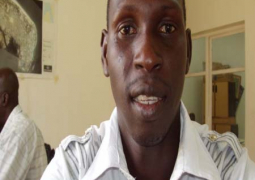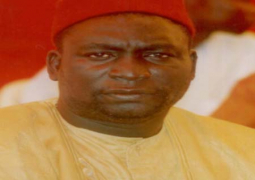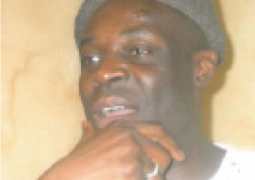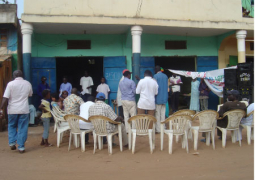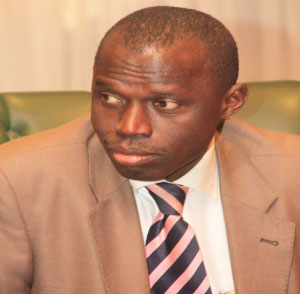
The government of The Gambia last week launched two new projects aimed at facilitating efficient, effective and equitable water resources management throughout the county. The projects are also expected to help support economic growth as well as improve livelihoods with the overall aim of reducing poverty.
The launch of the National Water Sector Reform Project (NWSRP) and the Rural Water Supply Sanitation Project (RWSSP) is welcome news at a time when a food crisis is rocking the West African states along the Sahel Strip.
In today’s edition of the Agricultural Spectrum, we examine the impact these important projects may have on the country’s farming communities at a time when farmers are struggling to feed their families after a reported 70% crop failure in The Gambia.
The projects aim to provide improved access to water supply and sanitation for about 60,000 people in 22 rural communities, by providing new and rehabilitated boreholes and sanitation facilities.
Funded with a grant excess of $11 million from the African Water Facility (AWF) and the Rural Water Supply and Sanitation Initiative (RWSSI) of the African Development Bank (AfDB), the two projects, if properly implemented, will go a long way in helping those who rely on agriculture to survive.
The objectives of the project include: improved water resources governance; enhanced capacity to manage the country’s water resources; efficient allocation of water resources from improved knowledge of those resources; sustainable management of ground water resources; and the establishment of water sector actors and stakeholders at all levels.
The Vice President and Minister of Women’s Affairs, Dr. Aja Isatou Njie Saidy, was quoted as saying at the launching ceremony last week that: “It is common knowledge that…without a reliable and sustainable supply of clean water, human survival will be challenged, agriculture will be crippled, and industry and all other sectors of the economy will not be able to provide the products and services required for the economic growth and social wellbeing of the nation.”
The Vice President added that access to water is a basic human right and that the launching of the two projects will be a landmark event in the development history of The Gambia. She further emphasized the government’s commitment to achieving 100% water supply coverage.
If the government is indeed committed to 100% water supply coverage, then there should at least be clean drinking water in all areas of the country. Unfortunately, this is not case. In some areas, villagers are complaining of water shortages which force them to travel for miles just to get access to clean drinking water.
The Vice President also raised concern over the sustainability of water systems in rural communities, saying that given the huge capital investment, the need for continuous protection cannot be over emphasized. She called for adequate maintenance and replacement strategies to be in place and challenged those responsible for implementing the project to ensure that its objectives are met.
Minister of Fisheries, Water Resource and National Assembly Matters, Abdou Colley, who was also present at the launch event, explained the importance government attaches to sanition and clean drinking water. Mr Colley called on communities to protect their water facilities given the huge amount of money that is being invested.
He said: “Water very vital, and without it there will be no good health and education, and therefore it should be managed rationally.”
The Director of Water Resource, Baba Ceesay, also spoke at the event, recalling that over the last 30 years, the United Nations has been especially conscious of the significant role water and sanitation plays in human development, and has set out to define some general plans for development.
Director Ceesay also noted that women play a fundamental role in the provision, management and safekeeping of water. He also noted that water has an economic value.
Director Ceesay reaffirmed the government’s commitment to move towards an integrated approached to water resources management.
For comments, suggestions, recommendation and contributions, sent them to saineymarenah@ymail.com or call +220-3471343
Agricultural Spectrum Catchword of the Week: “Without water, there cannot be life.”
Read Agricultural Spectrum, your weekly Column every Tuesday for insightful news and current affairs on agricultural development in The Gambia and beyond


